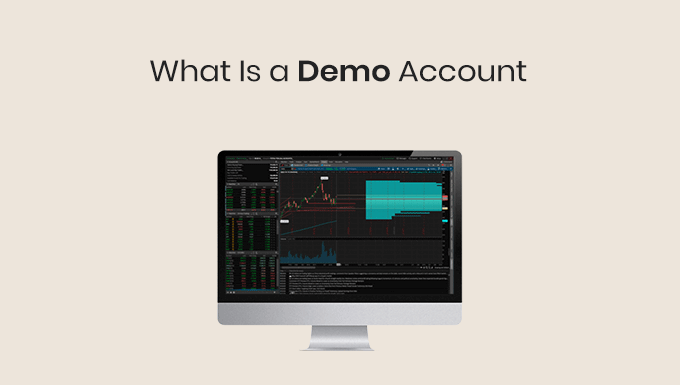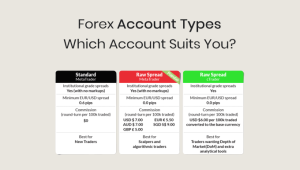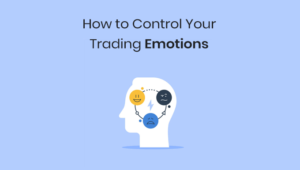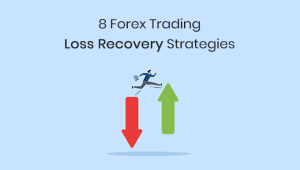Demo accounts let people who want to invest try out trading and learn new strategies before they trade with real money.
Almost all brokers offer demo accounts so that beginner traders can get a feel for what it’s like to trade in real markets without any risk.
In this article, I will explain to you how demo accounts work and what you should be aware of as a beginner trader.
What is a Demo Account?
A demo account is a trading platform (or practice account) that lets you trade on different timeframes and with a wide range of financial instruments, like currency pairs, cryptocurrencies, stocks, futures, and options. When opening a demo account, you can choose any amount, account type, and leverage.
A demo account works exactly the same as a real account. You can test different trading strategies and backtest Expert Advisors on it. If necessary, you can create several demo accounts free of charge. Also, it is an effective way to test different broker platforms and their functionality when choosing a potential broker and its software.
Benefits of Demo Accounts
Trading on a demo account has many advantages.
1. Market research
Testing various financial instruments will allow you to get a feel for how they behave and find the best asset you need. For example, trading stocks will be different from trading currency pairs.
2. Trading experience
Before risking real money, you can practice activities such as opening and closing positions, as well as applying stop losses and take profits.
3. Graphs
Learn how to interpret and use charts, from testing technical indicators to identifying chart patterns.
4. Quote history
You can analyze your trading history to correct mistakes and improve your trading system.
5. Trading indicators
Broker platforms give you access to various technical indicators. You can put them into action and learn how to use them in trading.
6. Risk
Since demo accounts use virtual money, any trading mistake you make will not cost you your own money.
7. Broker and platform
Trading with demo accounts is an effective way to test a potential broker and their trading platform. For example, you can check what trading features the broker offers and how the software works.
Testing strategies and advisors. Demo accounts are the perfect place to test your strategies and trading robots. Even professional traders actively use demo accounts to test their strategies.
Disadvantages of Demo Accounts
Despite all the advantages, Forex demo accounts do have some drawbacks.
1. Execution
Demo accounts often have better trade execution than real accounts. This is because demo accounts usually fill market orders at the price shown in the trading terminal. However, there is slippage in the real market. This may result in orders not being filled at the expected price. Thus, a profitable strategy on a demo account can become unprofitable on a real account. This should be taken into account when testing the strategy.
2. Big deposits
Usually, demo accounts allow you to choose which deposit you would like to trade with. As a result, many traders choose to trade far more than they can afford to trade on a live account. A larger deposit makes it easier to recover losses. When you switch to live trading with a small deposit, you might not realize how risky it is and lose money.
3. Spreads
Forex brokers often try to impress potential traders with tight spreads on demo accounts. However, during live trading, the specified spread can be much wider.
4. Leverage
Many traders take advantage of the increased leverage that some brokers often offer on demo accounts. Although this can lead to big virtual profits, it can also lead to big losses if you do not follow money management techniques and open trades risking the entire deposit.
5. Emotions
Demo accounts will not expose you to any emotions like fear, excitement, or greed that you may experience during live trading. Unfortunately, you cannot practice trading emotions with demo accounts.
6. Risk
Traders often overestimate the risk on a demo account more than they would if real money was at stake. This can lead to bad habits when switching to a real account.
7. Overtrading
On a demo account, traders often trade actively, opening many trades. Again, this can develop into a habit. But when you move on to live trading, you need to know that quantity does not always beat quality.
However, this does not necessarily mean that you should not use demo accounts. You just need to be aware of the risks so that you can prepare for trading with a live account.
How to Open a Demo Account?
Most forex brokers offer the opportunity to open a demo account without making a deposit, and you can create an unlimited number of demo accounts.
To do this, you need to go through a simple registration on the broker’s website, specify the amount of the desired deposit, account type, and leverage.
You will receive an account number and password, which you will need to enter in the trading terminal, after which you can start trading.
Conclusion
A demo account allows you to simulate real trading, with the only difference being that you are using virtual money. So, you can learn everything you need to know about the markets and the trading platform without putting your own money at risk.







